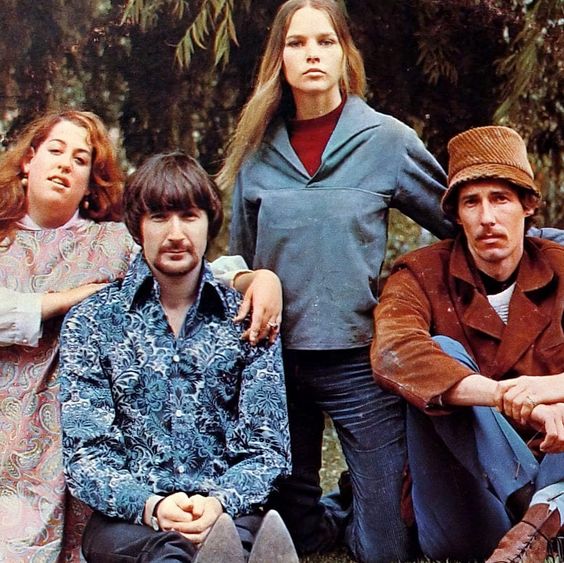A soft song about moving west became one of the clearest mirrors of a restless era. “Twelve Thirty (Young Girls Are Coming to the Canyon)” is not the band’s loudest hit, but it is one of their sharpest emotional statements, carrying a mixture of longing, escape and fragile hope.
The Mamas & The Papas wrote their names into folk‑rock history in the 1960s. By the late 1960s their sound had darkened at the edges. Internal strains and changing lives pushed the group toward music that looked inward, and “Twelve Thirty” stands out as a small, precise jewel from that shift. It began as a simple story about leaving New York and finding a different life in the West — yet it swells into something much larger.
The track’s opening is spare: acoustic guitar and piano set a gentle pace. The verses feel weathered, the chorus lifts like a sunlight break through a cloud. The band’s harmonies — now unmistakable — carry most of the emotion. Arrangement choices, from delicate percussion to subtle horns later in the song, show the group reaching for a cinematic sound without losing folk roots.
Lyrically the song reads like a short, honest memoir. The writer, John Phillips, turned a personal move into a universal scene — the bright promise of Laurel Canyon against the dull gray of the city. Those words linger in the song:
“I used to live in New York City, everything there was dark and dirty” — John Phillips, songwriter
The chorus answers the gloom with a cheer that is not naïve but determined:
“Young girls are coming to the canyon” — John Phillips, songwriter
That contrast—dark verses, buoyant chorus—gives the track its power. The band knew how to let a harmony sit on a single emotional note, then let instruments and voices rearrange the mood two lines later. It feels like watching someone step from shadow into sunlight, then glance back with a worried smile.
For listeners who were young then and for those who came after, the song has practical meanings. Radio DJs who played morning programs found that the track fit between heavy news and lighter fare. Community dances and local gatherings sometimes used the refrain to spark conversation about moving, family, and new beginnings. The sound is familiar to many older listeners: clear vocal blends, piano that never overwhelms, and a bridge that opens the song’s heart.
Music historians point to the song as a sign of the group’s growing complexity. Where early recordings leaned on upbeat pop, later work folded in orchestral touches and layered vocals that required careful studio work. The arrangement of “Twelve Thirty” is a study in restraint and release — small sections of instrumentation that swell at key lines.
Numbers matter in memory. A handful of songs from the era still rotate on classic stations and playlists aimed at older audiences. For many, hearing the opening piano of this song brings an immediate recognition. For others, it surfaces memories of times when leaving a place meant not just a change of address but a change of life.
The song also marks a cultural shift. It frames a search for belonging at a time when young people were redefining home, art and community. The Laurel Canyon image is now shorthand for those searching days — rooms full of guitars, late conversations and the slow building of new scenes.
Inside the studio, the track’s recording reveals small tensions: who sings which harmony, how loudly to bring a horn line, when to let silence sit. Those choices shaped a record that sits between personal confession and public soundtrack, and they left listeners with an unresolved feeling — the sense that change had begun but the outcome was not yet clear, and the canyon doors were…
